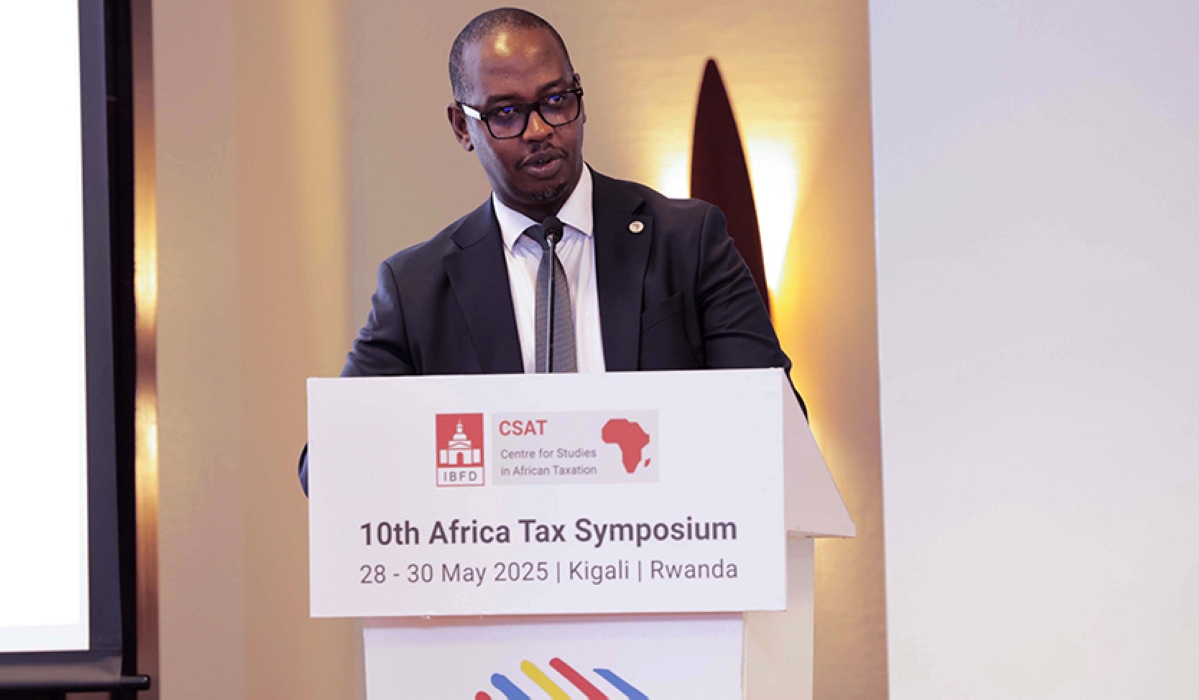
How can Africa match tax laws with local circumstances and support global tax reforms?
African countries are encouraged to establish regulations and policies that align with their daily realities and priorities, focusing on the development of strategic and inclusive tax models instead of merely accepting global tax reforms.
The 10th edition of the Africa Tax Symposium, themed “Trends in International Taxation: An African Perspective,” commenced on May 28 in Kigali, uniting tax experts, policymakers, and academics.
The three-day symposium, organized by the International Bureau of Fiscal Documentation (IBFD), seeks to address international tax issues pertinent to Africa.
Jan Maarten Slagter, the CEO of IBFD, recognized the continent’s strength amid global challenges such as inflationary pressures and geopolitical uncertainties. He emphasized that African nations continue to grapple with the challenge of generating domestic revenues. He highlighted the international frameworks in taxation, particularly the Organization for Economic Co-operation and Development’s (OECD) Two-Pillar Solution, which aims to tackle the tax challenges posed by the digital economy by reallocating taxing rights and implementing a global minimum tax.
“These reforms should not only embody a global consensus, but they must also provide concrete advantages to African economies,” he emphasized, highlighting that Africa should not merely accept global tax reforms, but actively participate as a co-author.
He stated, “As we progress, it is essential that we engage not from the sidelines, but as a credible and capable partner.”
Ronald Niwenshuti, the Commissioner General of Rwanda Revenue Authority (RRA), emphasized the importance of advocating for tax policies that align with the realities and priorities of Africa.
Global tax reform is advancing, and Africa stands at a pivotal juncture. Niwenshuti stated, “The decisions we make now and the actions we take together will shape our region’s role in the international tax order for decades to come.” He highlighted Rwanda’s efforts to enhance the international agenda, noting that it established an International Tax unit in 2017 to manage transfer pricing audits, international tax treaties, and risk-based taxpayer profiling.
Rwanda is set to introduce a Digital Services Tax by 2026, aiming to ensure that foreign digital platforms contribute equitably to the economy.
Niwenshuti states that Rwanda incurs a loss of more than Rwf6 billion due to untaxed online services, particularly Netflix. He stated that the tax authority is developing systems designed to enable smooth tax collection from these services, with implementation expected in June 2026.
“Africa is a net consumer of digital services and platforms, but without a robust policy framework, we risk under-taxing a rapidly expanding segment of economic activity,” he cautioned, estimating that taxing the digital economy could increase African tax revenues by as much as 4 percent.
Niwenshuti highlighted tangible benefits from international collaboration, referencing the 2023 Tax Transparency in Africa report, which indicated that African nations generated more than $1.8 billion through information exchange, offshore investigations, and voluntary disclosures.
“These figures are significant.” They demonstrate that African tax administrations are not merely adjusting, but also innovating, turning international tax principles into tangible benefits.
Dr. Victor van Kommer, a member of IBFD’s Executive Board, highlighted the necessity of eliminating bureaucratic obstacles among African nations to establish a cohesive internal market and foster economic growth.
“Eliminating various bureaucratic obstacles fosters the creation of an internal market, which serves as a catalyst for economic growth.” “I understand that in Africa, numerous barriers exist between countries, and even the visa application process can be quite challenging,” Kommer remarked, emphasizing that collaboration enhances the strength of nations as they jointly tackle international tax issues.
Belema Obuoforibo, the Director of IBFD’s Knowledge Centre and Chair of the Centre for Studies in African Taxation, highlighted the significance of pan-African collaboration.
“A cohesive perspective from Africa can only emerge if we, as a continent, examine the challenges and develop shared stances.” “However, that can only be accomplished once the issues have been identified,” she stated.
All Categories
Recent Posts
Tags
+13162306000
zoneyetu@yahoo.com



